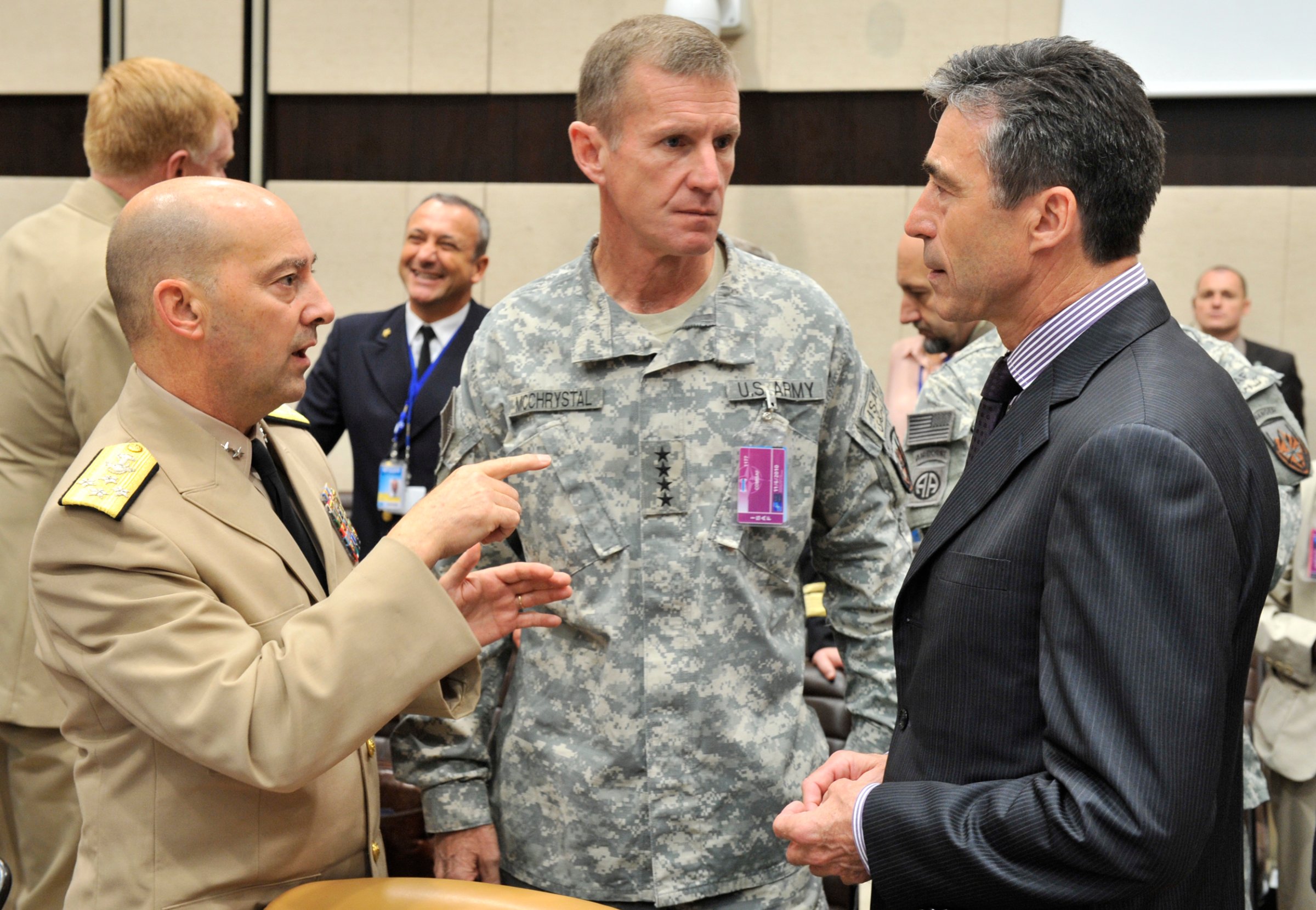
Recently, I made a huge job and life transition: after more than 35 years in the U.S. military, and the last four as the Supreme Allied Commander at NATO, I needed new challenges. This is, of course, a situation familiar to many — especially in today’s highly mobile job universe, when an average college graduate will have perhaps a dozen significant jobs and possibly four or more separate careers.
As I tried to work through what to do next, there were many options. I was offered positions in international consulting, global risk assessment firms, domestic business ventures, board positions and even additional jobs in government. To sort through it, I tried to think of what I had enjoyed so much about my time in the U.S. Navy. After all, something had kept me happily going for more than three decades. I realized that I liked many things about the Navy: going to sea as a mariner, traveling around the world, working with brave volunteers in combat and on diplomatic missions, and the educational benefits, to name a few. But what I truly loved about the Navy was the challenge of leading and mentoring young people, helping guide the trajectory of their lives in a positive direction. “Sounds like education,” said one mentor, herself a university president. And so I set about finding the right kind of job in the world of education.
I knew that I have a deep passion for the international sphere, and a real love for the place I had earned my own graduate degree, The Fletcher School of Law and Diplomacy at Tufts University. Luckily, the incumbent dean was retiring at a time that made it possible for me to move directly from my position at NATO, which Dwight Eisenhower had held, to a nice campus in Medford, Mass. I went from an organization representing half of the world’s GDP and 3 million men and women in uniform to one with 700 graduate students and 150 faculty and administrators. It was a startling shift.
"If you think faculty meetings are tough sledding, try mediating between 28 allies debating an intervention in Libya."
People kept saying, “it must be pretty challenging to go from the military — where people more or less do what you order them to do — to the world of academe, where no one is going to salute and move out.” The President of Tufts, to whom I report, was asked why on earth he hired a military guy to lead one of his graduate schools. He said, only slightly in jest, “I wanted at least one dean who knows how to follow orders.” There’s certainly some truth in that.
The transition has gone well. Why? Because of things I learned along the path of what my father jokingly referred to as my misspent youth in the Navy.
First, I have focused on listening and learning, especially in this first year. I have been reading not only classics on higher education (The University: An Owner’s Manual by Henry Rosovsky), but also brilliant novels about this world (Stoner by John Williams and Something for Nothing by Michael Klein). I’ve also reached out to mentors in this industry, from Robert Gates, former President of Texas A&M, to Jack DeGioia of Georgetown, to Donna Shalala at the University of Miami, and many others.
Second, I spend lots of time walking the campus and talking to students, faculty and administrators. The faculty is at the heart of any school, but as I always say, there is another name for students: customers. I also chat with the cleaners, maintenance people, campus police and the folks running our dining facility. Putting in the time to understand the full spectrum of an enterprise is critical.
Third, the university is coming up with a strategic plan for the first time in a decade. It’s not only a terrific way to team build and create a coherent way ahead, but also a good exercise in learning where the faulty lines and fissures of an institution lie. Research versus teaching? Practical skills courses versus theory and history? Fundraising for facilities or financial aid? Disciplines that cooperate together and those that compete? Working on the plan throws all those issues under a bright light: just what the new dean needs.
Finally, I went from the crisp efficiency of the U.S. military to what feels like, in comparison, the free-wheeling academic carnival that is higher education. I spent four years in NATO, a consensus-driven, highly competitive, discussion-oriented international security organization. If you think faculty meetings are tough sledding, try mediating between 28 allies debating an intervention in Libya. Much of the same skills are called for: collegiality, good humor, a sense of where you want to land in the process, but above all deep respect for each of the participants in the dialog. Collaboration is at the heart of NATO, and at the heart of the academy as well — hard as it is at times to achieve.
Academe and higher education in particular are not for everyone, nor for the faint of heart. But for me — applying some of what I learned along the way in my nation’s service — it has been a delight.
James Stavridis, a former NATO Commander and retired four-star Navy Admiral, serves at The Fletcher School of Law and Diplomacy at Tufts University. He is the author of the upcoming memoir The Accidental Admiral.
More Must-Reads From TIME
- The 100 Most Influential People of 2024
- The Revolution of Yulia Navalnaya
- 6 Compliments That Land Every Time
- What's the Deal With the Bitcoin Halving?
- If You're Dating Right Now , You're Brave: Column
- The AI That Could Heal a Divided Internet
- Fallout Is a Brilliant Model for the Future of Video Game Adaptations
- Want Weekly Recs on What to Watch, Read, and More? Sign Up for Worth Your Time
Contact us at letters@time.com